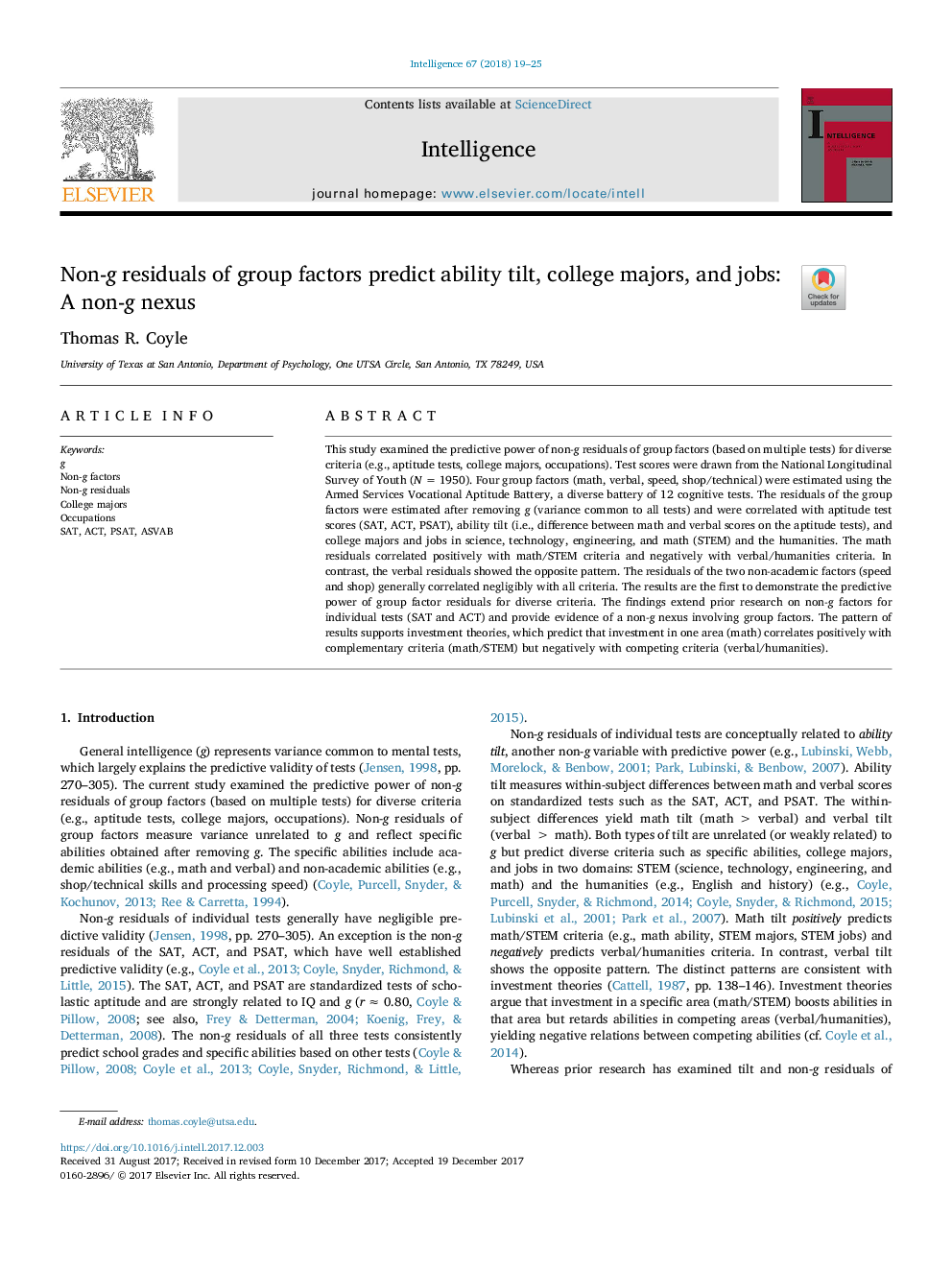ترجمه فارسی عنوان مقاله
غیرقانونی از عوامل گروهی پیش بینی شیب توانایی، پیشرفت تحصیلی و شغلی: عدم همبستگی غیرگروه
عنوان انگلیسی
Non-g residuals of group factors predict ability tilt, college majors, and jobs: A non-g nexus
| کد مقاله | سال انتشار | تعداد صفحات مقاله انگلیسی |
|---|---|---|
| 105617 | 2018 | 7 صفحه PDF |
منبع

Publisher : Elsevier - Science Direct (الزویر - ساینس دایرکت)
Journal : Intelligence, Volume 67, MarchâApril 2018, Pages 19-25

